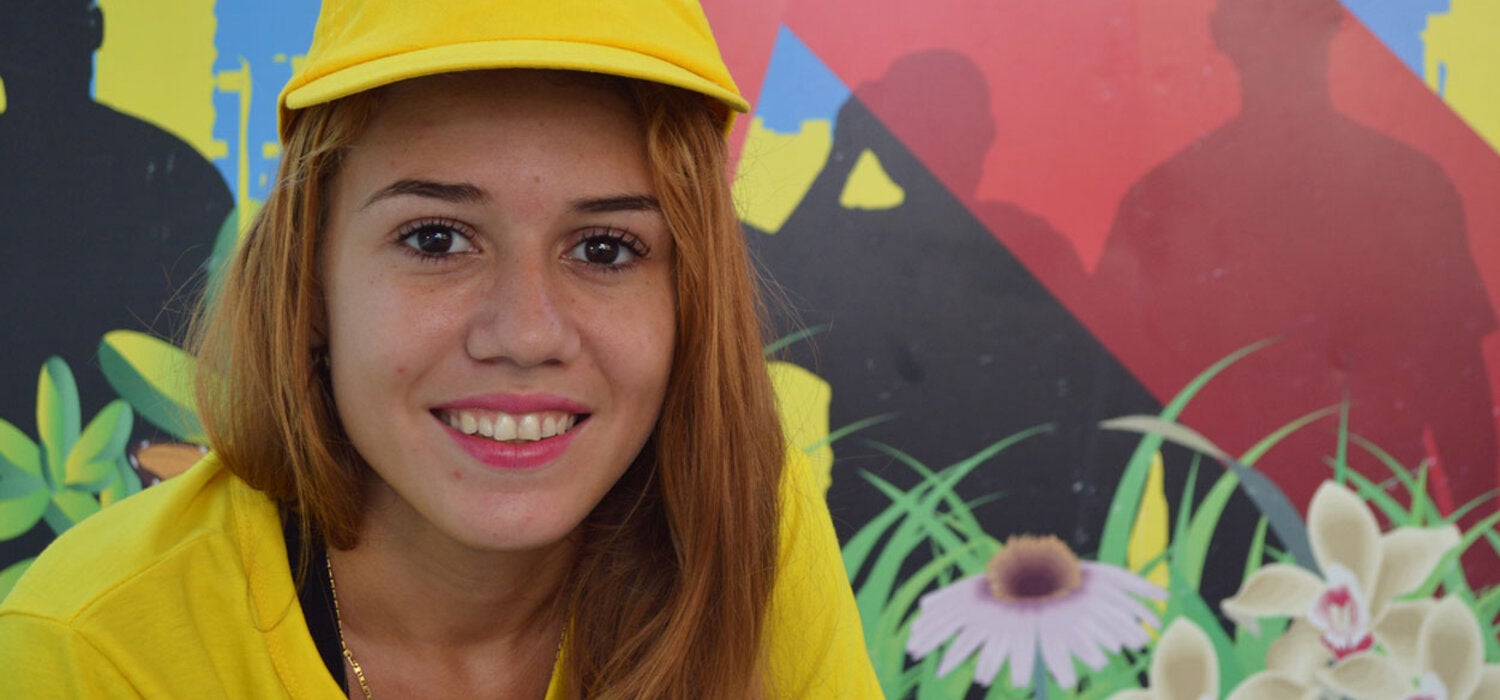Anet Naranjo is 19 years old and lives in Cerro, Havana, Cuba. She is a health promoter at the National Center for the Prevention of STIs and HIV/AIDS and belongs to the group of young volunteers for the Trolley for Life (Carrito por la Vida) project, dedicated to preventing sexually transmitted infections, primarily among adolescents and young people between 12 and 29 years.
"A grain that I plant in each person today, will grow to be something wonderful tomorrow".
Once a week, the group ventures out to vulnerable areas in Havana, to schools and parks in order to talk about sexually transmitted infections, unwanted pregnancies, and why it is important to protect yourself.
Five years ago, Anet was trained as a promoter at the National Center for the Prevention of STIs and HIV/AIDS. After the weeklong workshop, she started to join the weekly excursions and activities. Anet's main motivation was knowing that with her work, she could help other people, raise awareness about health issues, and share her knowledge. She helps other young people transform the way the see their lives.
To prevent sexually transmitted infections and promote health, Anet hands out condoms and various educational materials, as well as information on places where young people can go to seek help. Anet has noticed that they listen to her, because she is the same age as her audience.
Havana is the most densely populated province of Cuba. It has one of the highest rates of death due to communicable diseases, and the highest mortality due to infectious and parasitic diseases. In addition, in Cuba, as in other countries of the region, the HIV/AIDS epidemic is urban and slow-growing, but sustained.
What´s next for Anet? "I think that this work is infinite, that we still have many people left to help," she says. "It is not just about changing the way people think, but about helping them understand the causes of problems. We have to reach more vulnerable communities, at greater risk, and people of very low educational levels who do not understand us and reject us. And reaching those people who reject us is a key objective for us."

